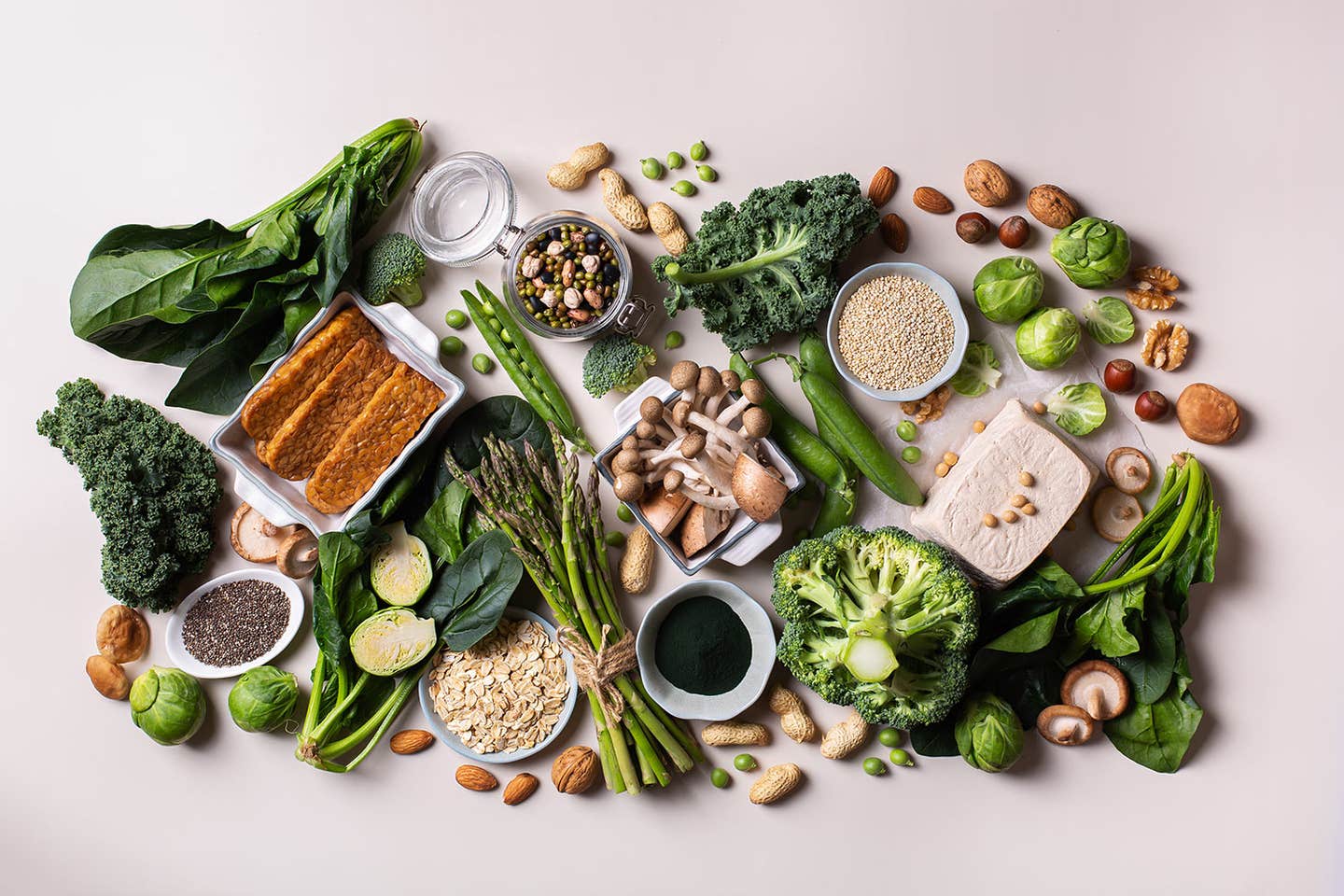
U.S. Dietary Guidelines Poised for Bold Shift Toward Plant-Based Whole Foods
The Dietary Guidelines Advisory Committee has announced its recommendations for the 2025–2030 U.S. Dietary Guidelines, and they include a historic shift in favor of plant-based whole foods.
The Dietary Guidelines not only counsel individual Americans on how to eat; they also set budgeting priorities for the millions of dollars that the U.S. government invests in food programs. The federal government redevelops the Dietary Guidelines every five years, under the guidance of the Dietary Guidelines Advisory Committee (DGAC). This year’s committee is made up of 20 nutrition and public health experts, who say that they arrived at their 2025–2030 recommendations using a scientifically rigorous, multi-year process to “examine the relationship between diet and health across all life stages.”
A Shift Toward Plant-Based Proteins
In addition to recommending more plant-forward, nutrient-dense eating patterns overall, the committee specifically recommends updating the Dietary Guidelines so that plant-based sources of protein are listed before animal-based sources—a reprioritization in line with a trove of research linking animal protein with adverse health outcomes, including higher rates of Type 2 diabetes and early death. The recommended guidelines would also expand the number of plant-based foods considered to be “protein foods.” Under the current guidelines, the only plant foods categorized as such are soy products, nuts, and seeds. The new recommendation would add beans, peas, and lentils to this group, and list them, along with soy products, ahead of meat (including poultry), eggs, and seafood.
Neal Barnard, M.D., president of the Physicians Committee for Responsible Medicine, a public health advocacy nonprofit of 17,000 doctors, praises the shift in priorities. “If these recommendations are included in the 2025–2030 Dietary Guidelines for Americans, it will increase the consumption of healthy plant-based sources of protein like beans, peas, lentils, and other legumes, which can help Americans maintain healthy weight, lower blood pressure, and improve heart health,” says Barnard. “Highlighting these foods is important because they are lower in saturated fat than meat, eggs, and seafood while also containing fiber, a nutrient of which many Americans are not eating enough.”
Reducing Sodium and Rethinking Dairy
Throughout the report, the DGAC emphasizes the importance of consuming foods in nutrient-dense (i.e., whole) or less-processed forms, without added sugars, saturated fat, and sodium. It also calls on the U.S. government to set mandatory sodium reduction targets for commercial food manufacturers, instead of the voluntary targets that are in place now.
Taking a page out of Canada’s book, the DGAC also recommends making water the drink of choice in the new guidelines—a significant change, given the Dietary Guidelines’ history of promoting dairy. “There are no nutrients in dairy milk that cannot be found in other food sources,” Barnard says, noting that dairy products are the leading source of saturated fat in the American diet. During the last Dietary Guidelines update, in 2020, the American Medical Association called for meat and dairy to be deemed optional, writing in a statement that “dairy and meat products are promoted in federal nutrition policies even though they are not nutritionally required.”
Once submitted to the USDA and Health and Human Services Department, the DGAC’s full report will be available here. In the meantime, you can view a presentation of the committee’s forthcoming recommendations here.
To learn more about a whole-food, plant-based diet, visit our Plant-Based Primer. For meal-planning support, check out Forks Meal Planner, FOK’s easy weekly meal-planning tool to keep you on a healthy plant-based path.

About the Author

About the Author
Courtney Davison
Join our mailing list
Get free recipes and the latest info on living a happy, healthy plant-based lifestyle.
By providing your email address, you consent to receive newsletter emails from Forks Over Knives. We value your privacy and will keep your email address safe. You may unsubscribe from our emails at any time.